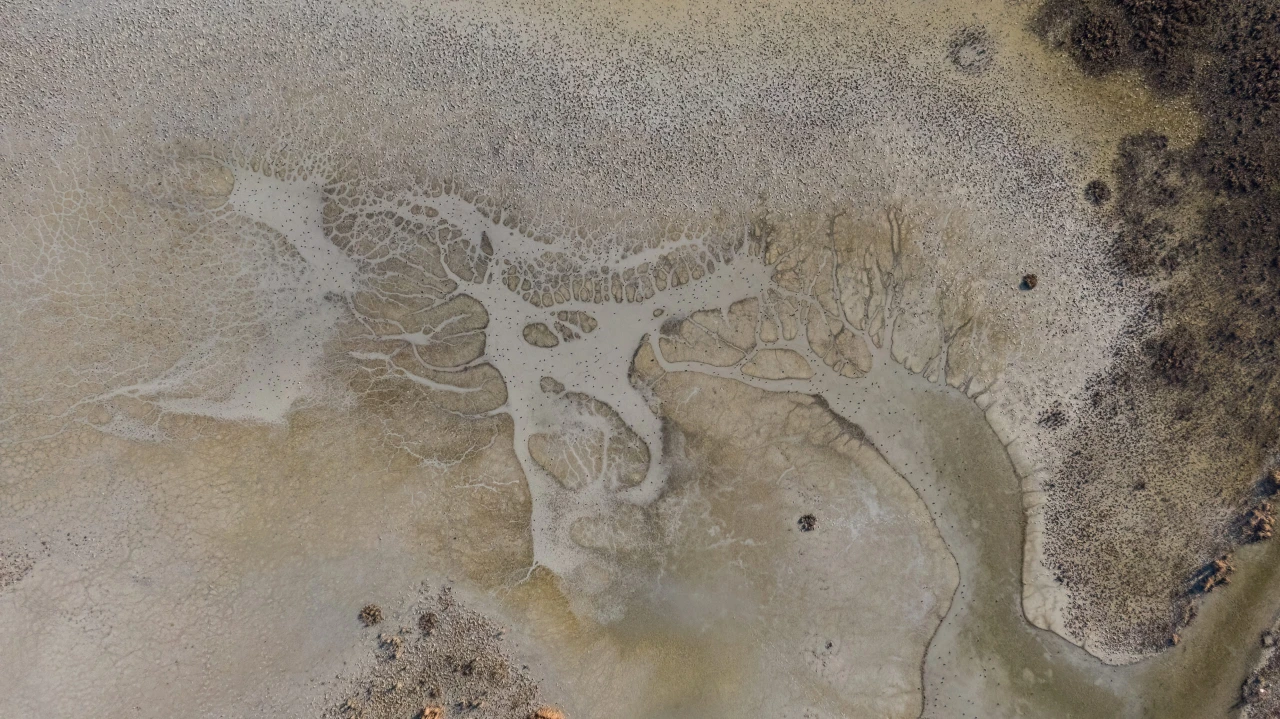Finland, Germany, Lithuania, Sweden investigate severing Baltic Sea cables
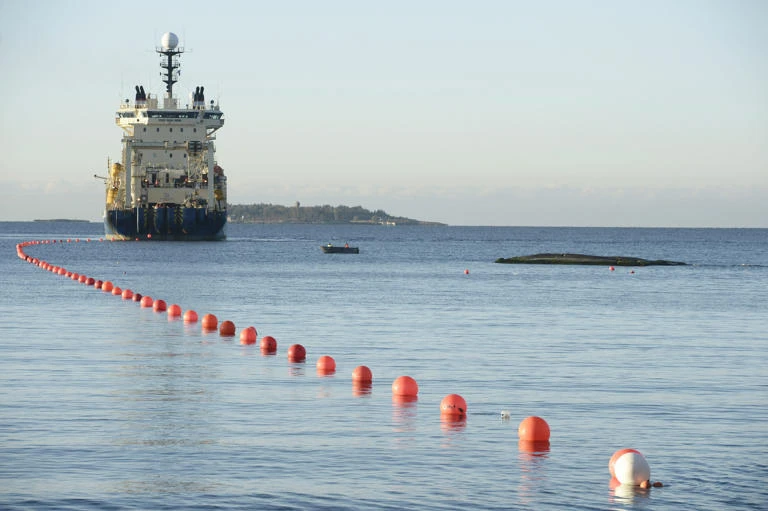 This picture taken on October 12, 2015, shows the C-Lion1 submarine telecommunications cable being laid to the bottom of the Baltic Sea. (AFP Photo)
This picture taken on October 12, 2015, shows the C-Lion1 submarine telecommunications cable being laid to the bottom of the Baltic Sea. (AFP Photo)
Authorities in Finland, Germany, Lithuania and Sweden are investigating the severing of two undersea communication cables interlinking their countries. Sabotage concerns over communication lines between northern European NATO members is growing.
Germany-Finland: C-Lion1 cable disruption raises sabotage concerns
The fiber cable, which spans nearly 1,200 kilometers through the Baltic Sea, was reported damaged early Monday. Finnish state operator Cinia confirmed the break, stating, “Such damage does not occur without external impact.” The disruption has not severely affected connectivity, as redundant lines are in place, but it has raised serious concerns about regional security.
Finland’s National Bureau of Investigation said Tuesday it had launched an investigation into the broken undersea telecom cable connecting Finland and Germany, in what Berlin considers “sabotage”.
“The National Bureau of Investigation (NBI) has received a request for an investigation from (network operator) Cinia Oy concerning the broken C-Lion 1 undersea cable in the Baltic Sea,” the NBI said, adding that it was “working to establish what has happened in the incident”.
The incident follows warnings about potential sabotage of undersea infrastructure, echoing similar occurrences, including the 2022 Nord Stream gas pipeline explosions.
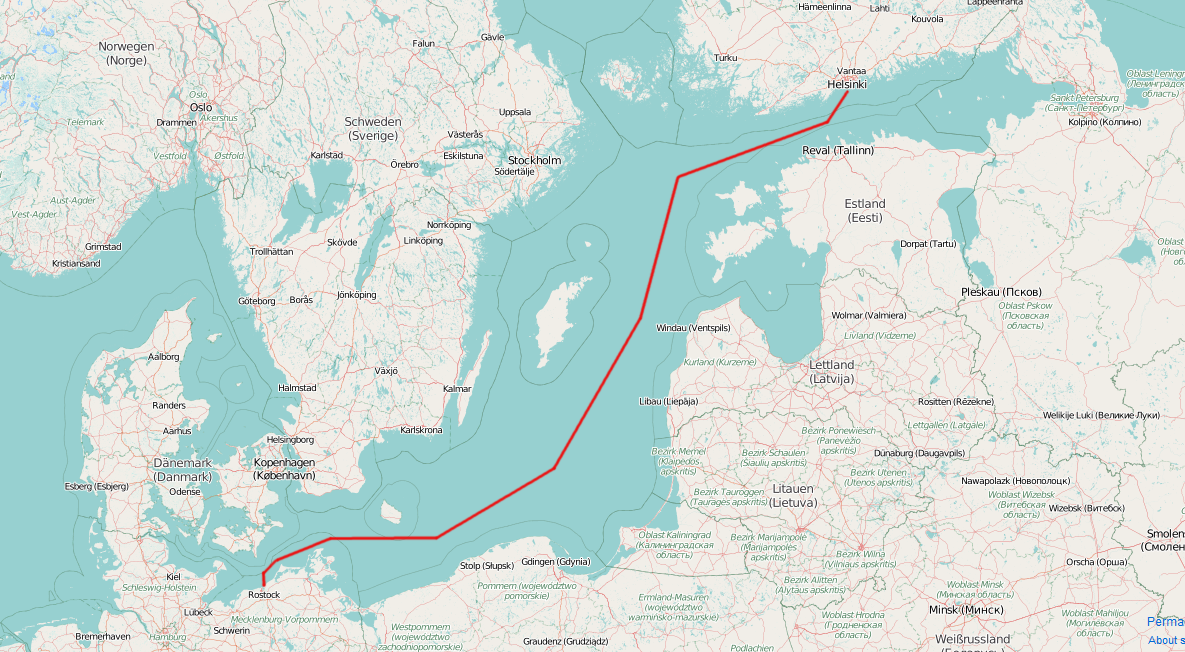
Lithuania-Sweden: Second Baltic Sea telecom cable damaged
A Swedish official said Tuesday that the country was investigating a damaged telecommunications undersea cable linking Lithuania and Sweden, a day after the announcement that a cable linking Finland and Germany was cut in what Berlin considers “sabotage.”
“It is crucial to clarify why we currently have two cables in the Baltic Sea that are not working,” Minister for Civil Defence Carl-Oskar Bohlin told AFP in a written statement, adding that “relevant Swedish authorities are investigating the events.”
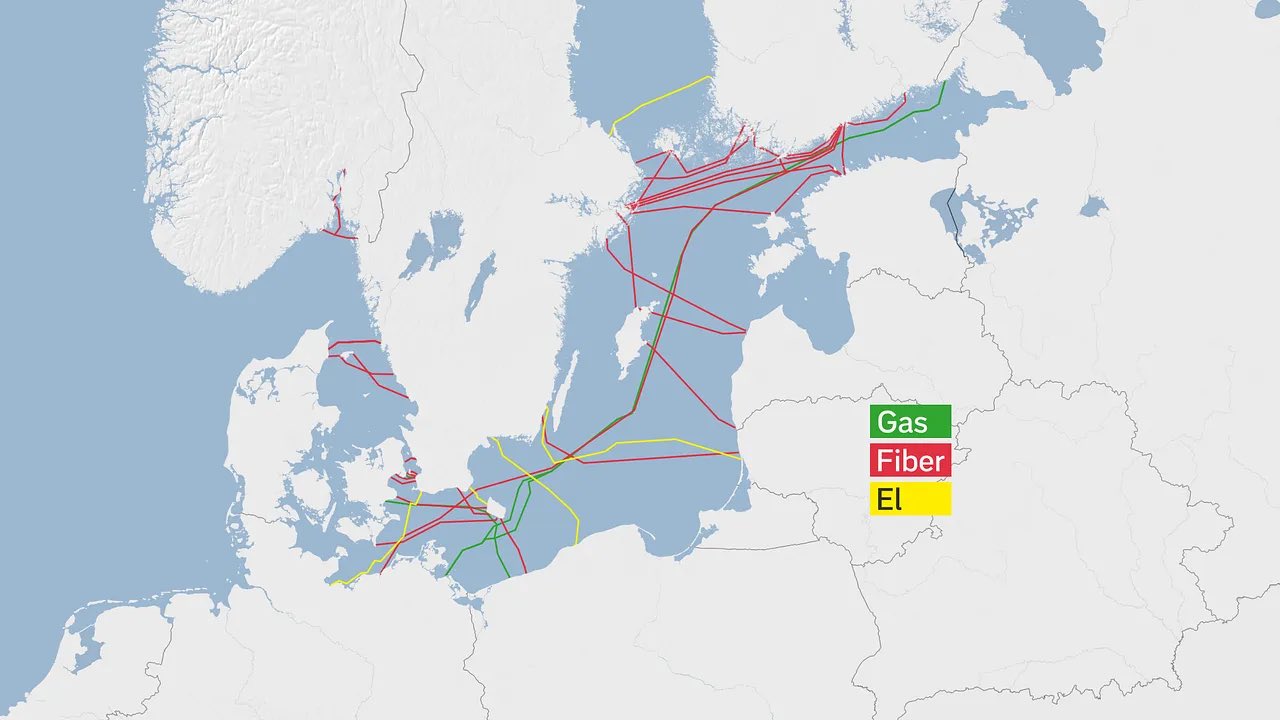
Joint statement and Germany’s potential ‘sabotage’ calls
Germany’s Defence Minister Boris Pistorius said Tuesday that recent damage to undersea communications cables in the Baltic Sea was a potential act of “sabotage.”
“Nobody believes that these cables were accidentally severed,” Pistorius said on the sidelines of a meeting of E.U. ministers in Brussels. “We have to assume, without knowing it yet, that it was sabotage,” he said.
The foreign ministers of Finland and Germany released a joint statement expressing deep concern over the incident. They noted the immediate suspicion of intentional damage as a stark reminder of the fragility of critical infrastructure.
We are deeply concerned about the severed undersea cable connecting Finland and Germany in the Baltic Sea. The fact that such an incident immediately raises suspicions of intentional damage speaks volumes about the volatility of our times.
A thorough investigation is underway. Our European security is not only under threat from Russia‘s war of aggression against Ukraine, but also from hybrid warfare by malicious actors. Safeguarding our shared critical infrastructure is vital to our security and the resilience of our societies.
Joint statement by the Foreign Ministers of Finland and Germany
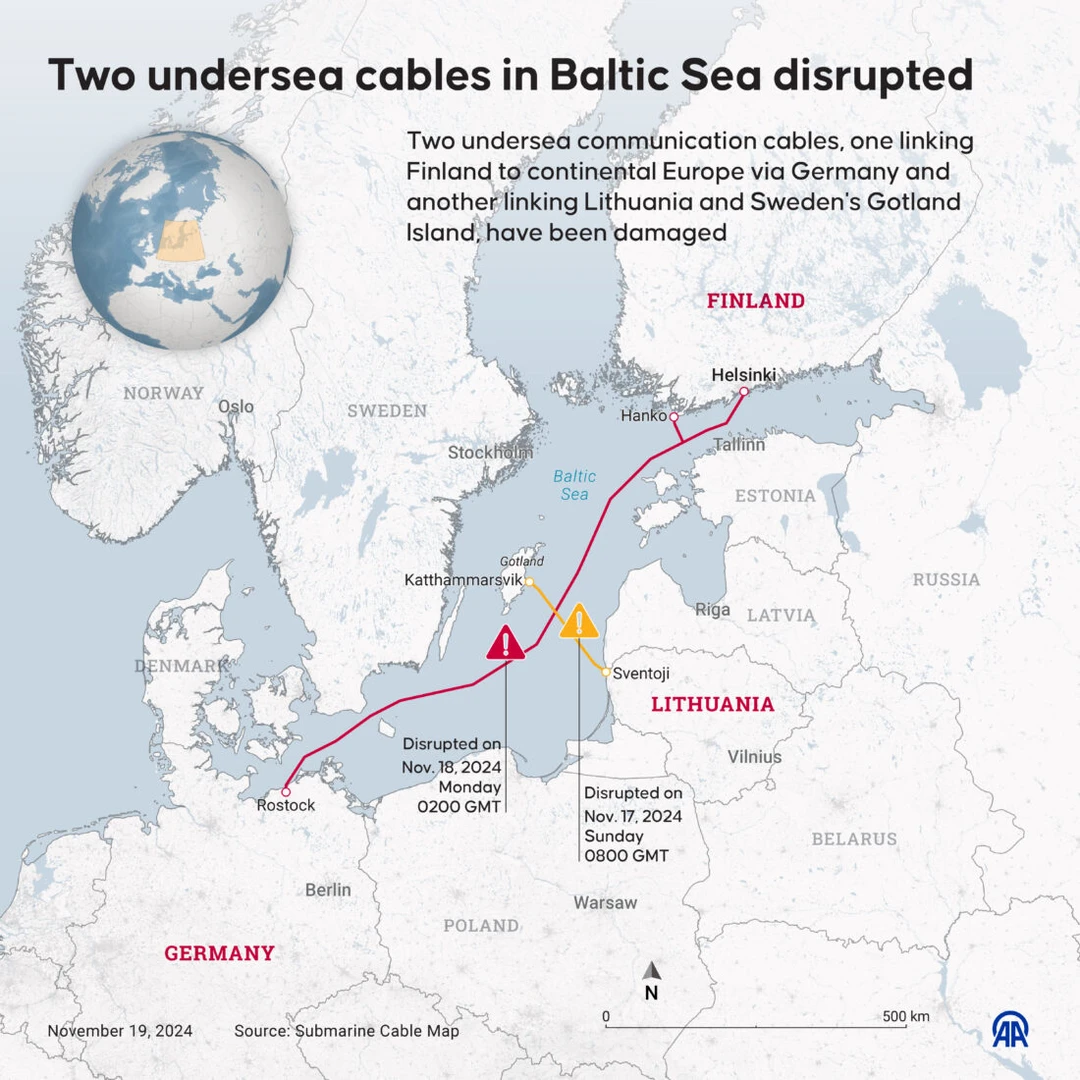
Fears of undersea sabotage heightened
The Baltic Sea region has seen increased scrutiny of its undersea infrastructure following incidents in recent years. In 2023, damage to gas pipelines and cables in the Gulf of Finland was attributed to a Chinese container ship dragging its anchor, though intentionality was not confirmed. NATO has since intensified monitoring of critical infrastructure in the North and Baltic Seas.
With the C-Lion1 cable being Finland’s only direct connection to Central Europe, the incident underscores the vulnerabilities in Europe’s interconnected network. Finnish Foreign Minister Elina Valtonen indicated that if a nation is found responsible, Finland will address it publicly.
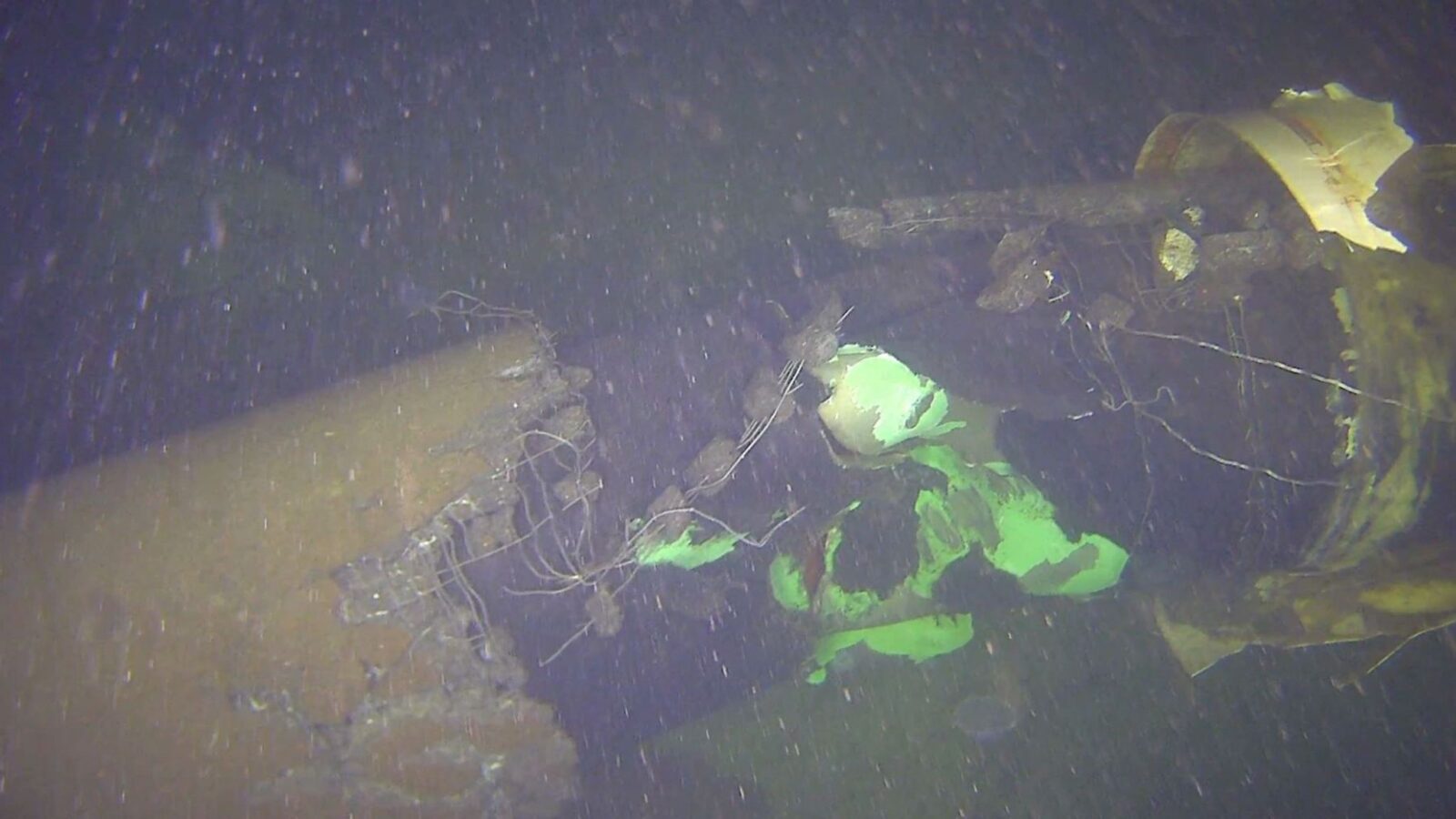
C-Lion1
C-Lion1 submarine cable, also known as Sea Lion, is a 4-fiber-pair and 1,172 km submarine cable from Helsinki in Finland to Rostock in Germany under the Baltic Sea, being the first direct submarine cable link between the Nordic region and continental Europe.
- Ready For Service: March 2016
- Cable Length: 1,172 km
- Owners: Cinia Oy
- Suppliers: ASN
Landing Points
- Hanko, Finland
- Helsinki, Finland
- Rostock, Germany
C-Lion1 (Sea Lion) provides a direct, low latency and cyber secure Internet backbone connection between Finland and Germany, Before the completion of C-Lion1, all data transmission to Finland was taking place via Denmark and Sweden.
Cinia Group leads the Sea Lion initiative as the developer and builder of the submarine cable, and later as an open access network operator. The Finnish Government is an investor of the initiative together with stakeholders OP-Pohjola and Ilmarinen.
The Finnish Ministry of Transport and Communications finalized the feasibility study on the C-Lion1 (Sea Lion) undersea cable project in June 2012. In August 2015, the Finnish government approved the construction of the C-Lion1 cable system. And Sea Lion cable project was completed in early 2016.
The C-Lion1 cable project is supplied by ASN, with a total cost of approximately Euro 100 million.
Have the countries of the Baltic Sea fallen short on capabilities?
NATO member Baltic Sea nations that are impacted by these two fiber communication cables shuttering raises questions over military preparedness of northern European members. All the more concerning given the indication of foul play and sabotage.
The fact that even these underwater communication cables, which are vital for global communication, cannot be protected suggests that the countries in the region lack naval and aerial surveillance to watch the Baltic Sea.
